Business in Central Eurasia
Module “Foreign Trade and Business in Central Eurasia” (e-learning, 22 ECTS,  )
)
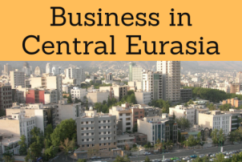
Six subjects compose the Module “Foreign Trade and Business in Central Eurasia” (Iran, Pakistan, Uzbekistan, Turkmenistan, Tajikistan, Kyrgyzstan...) offered by EENI Global Business School:
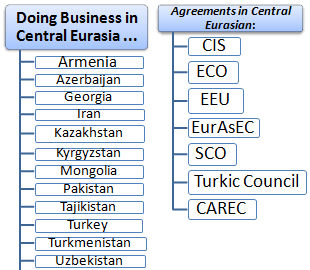
- The Central Eurasian Economic Area. Influence of Islam on business
- Doing Business in the Central Eurasian Markets: Armenia, Azerbaijan, Georgia, Iran, Kazakhstan, Kyrgyzstan, Mongolia, Pakistan, Uzbekistan, Turkmenistan, Tajikistan, and Turkey
- Regional Economic Institutions and Trade Agreements related to Central Eurasian Markets
- European Union Relations with the Central Eurasian Markets
- Other Economic Organizations related to Central Eurasian Region
- Business Plan for the Central Eurasian Markets

- Credits: 22

- Duration: 5 months It is recommended to dedicate about twelve hours of study per week following a flexible schedule. It is possible to reduce the duration dedicating more hours a week
- Download the syllabus (PDF)
Languages: 
- Also available in For improving international communication skills, student has free access to the learning materials in these languages (free multilingual training).
 Eurasia Central
Eurasia Central  Eurásia Central
Eurásia Central
 Asie Centrale
Asie Centrale
This Module belongs to the following Higher Education Programs offered by EENI:

Masters: International Business, Foreign Trade.

Masters adapted to the Central Asia Students:  Kazakhstan,
Kazakhstan,
 Kyrgyzstan,
Kyrgyzstan,
 Tajikistan,
Tajikistan,
 Turkmenistan, and
Turkmenistan, and
 Uzbekistan.
Uzbekistan.
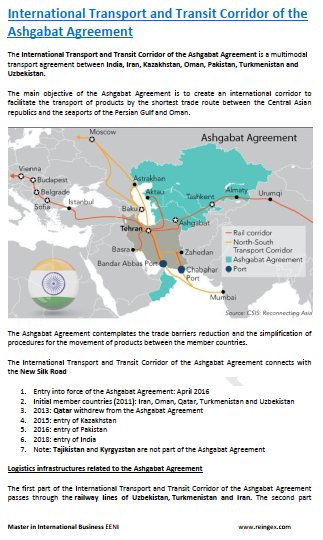
The main objective of the Module is to offer a global vision of the Central Eurasian region and business opportunities in Central Eurasia in order:
- To understand the importance of the main economic integration agreements in the Central Asian region: the Commonwealth of Independent States (CIS), the Economic Cooperation Organization (ECO), and the Eurasian Economic Union (EAEU)
- To learn to do business in the Central Eurasian Countries (Iran, Pakistan, Azerbaijan, Uzbekistan, Turkmenistan, Kazakhstan, Tajikistan, Kyrgyzstan, Turkey, Georgia, Armenia, and Mongolia)
- To conduct research on business opportunities in the Central Eurasian Countries
- To explore the Trade Agreements and Regional Economic Institutions related to Central Eurasia
- To research International Trade, logistics and Foreign Direct Investment flows
- To develop a business plan for the Central Eurasian Markets
Module intended for all those wanting to specialize in the Central Eurasian Markets.
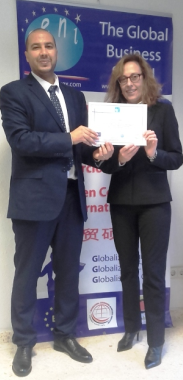
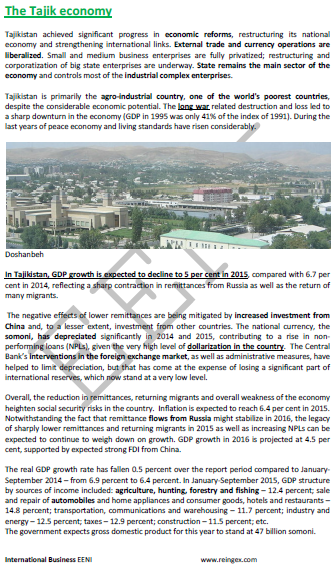
- Introduction to the Central Eurasian Region
- Main religion of Central Eurasia is Islam

- Other religions: Buddhism and Orthodoxy
- The deep influence of the Iranian and Turkic culture and languages
- The Central Eurasian Markets:
- Europe: Turkey, Azerbaijan, Georgia, and Armenia
- Central Asia: Turkmenistan, Kazakhstan, Uzbekistan, Tajikistan, and Kirghizstan
- Other Asian Countries: Iran, Pakistan, and Mongolia
- The Central Eurasian Economic Area (PDF) of Islamic Civilization
- Main religion of Central Eurasia is Islam
- Business in Armenia
- Business in Azerbaijan
- Business in Georgia
- Business in Iran
- Business in Kazakhstan
- Business in the Kyrgyz Republic (Kyrgyzstan)
- Business in Mongolia
- Business in Pakistan
- Pakistani Trade Agreements: China, Mauritius and the ASEAN
- Mian Muhammad Mansha
- Dewan Farooqui
- Business in Tajikistan
- Business in Turkey
- Turkish Trade Agreements with Chile, Egypt, Morocco, Tunisia, and EFTA
- European Union-Turkey Customs Union
- Africa-Turkey Partnership
- Business in Turkmenistan
- Business in Uzbekistan
- New Silk Road
- Almaty-Bishkek Logistics Corridor
- Bangladesh-Myanmar Logistics Corridor
- China-Russia Logistics Corridor
- India-Chabahar (Iran)-Afghanistan Logistics Corridor
- China-Pakistan Logistics Corridor
- China-Central-West Asia Logistics Corridor
- Europe-Caucasus-Asia Logistics Corridor
- Corridor of the Ashgabat Agreement
- Trans-Siberian Railway (Russia, North Korea)
- North-South Corridor (India-Russia)
- Afghanistan-Turkey Logistics Corridor
- Trans-Caspian Logistics Corridor
- East-West Corridor (Myanmar-Vietnam)
- Kyrgyzstan-Iran Logistics Corridor
- Islamabad-Tehran-Istanbul Logistics Corridor
- Regional Economic Institutions and Trade Agreements related to Central Eurasian Markets
- Commonwealth of Independent States
- Economic Cooperation Organization (ECO)
- Eurasian Economic Union
- Shanghai Cooperation Organization
- Turkic Council
- Central Asia Cooperation (CAREC)
- Organization for Democracy and Economic Development (GUAM)
- Black Sea Cooperation
- Asian Clearing Union
- Asia-Africa Logistics Corridor
- Organization of Islamic Cooperation (OIC)
- European Union Trade Relations with Central Eurasian Markets
- Association Agreement with Georgia
- Customs Union with Turkey
- Generalized System of Preferences (EU GSP)
- EU Enlargement
- EU Eastern Partnership
- European Union-South Caucasus
- European Neighborhood Policy
- EFTA Trade Agreements with Georgia and Turkey
- Business Plan for the Central Eurasian Markets (export, import, implementation)

The Module includes the Market Access Tool
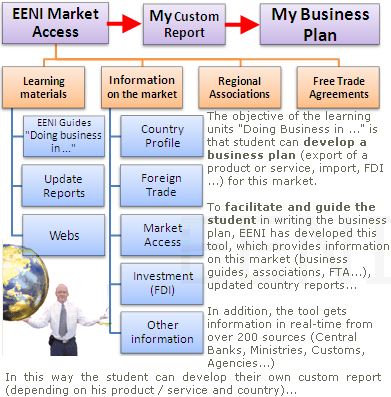
- Islamic Development Bank
- Economic Commission for Asia (ESCAP)
- Asian Development Bank
- Asia Cooperation Dialogue
- European Investment Bank
- Economic Commission for Europe (UNECE)
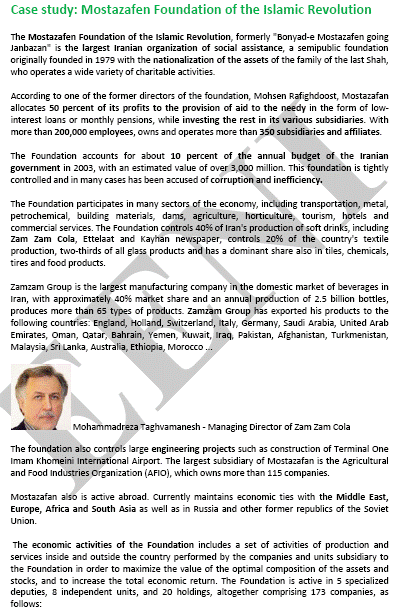
Sample: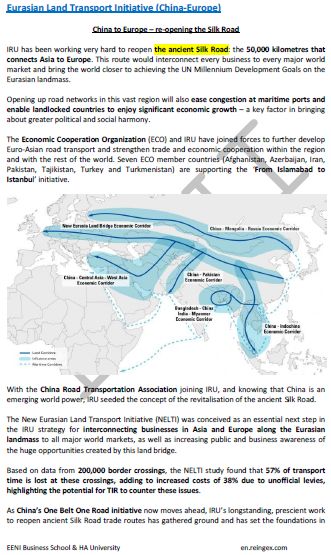
Sample:
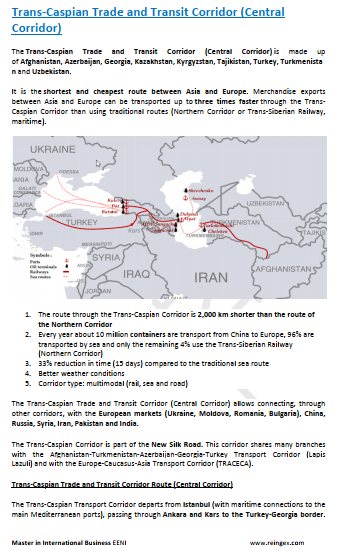
The Islamic Republic of Afghanistan is a poor and landlocked nation, highly dependent on farming, handicrafts and livestock raising. GDP of the Islamic Republic of Afghanistan has fallen substantially over the past twenty years because of the loss of labour and capital and the interruption of International Trade and transport.

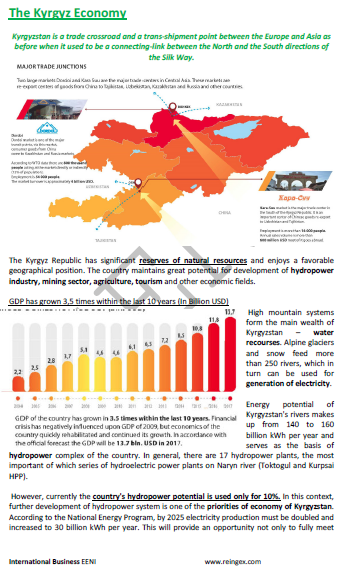
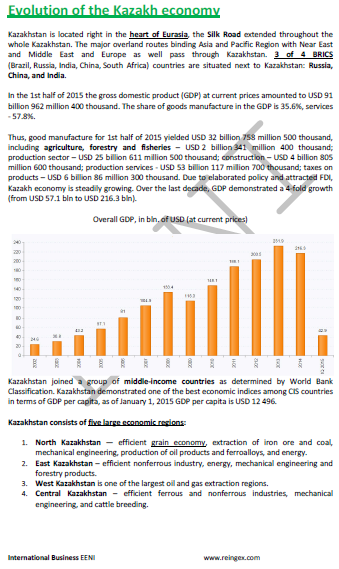
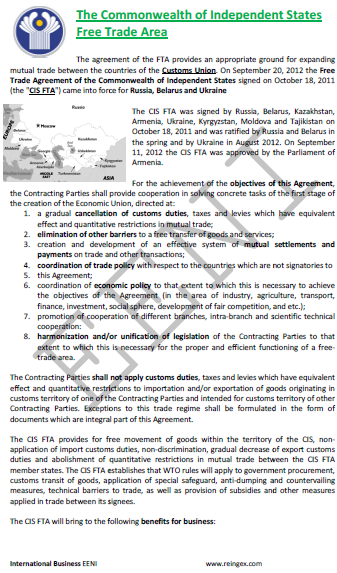
Sample: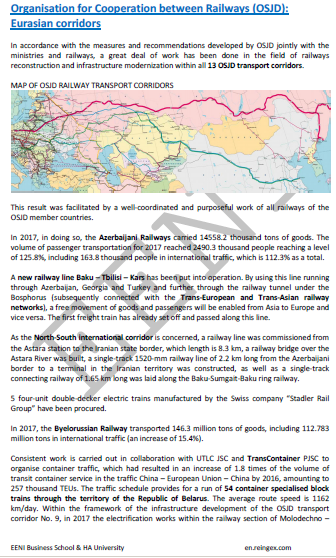
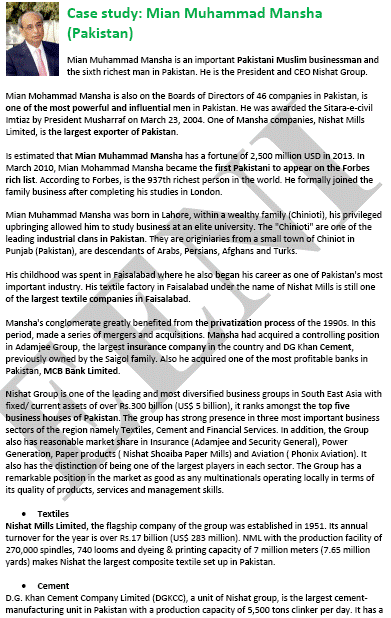
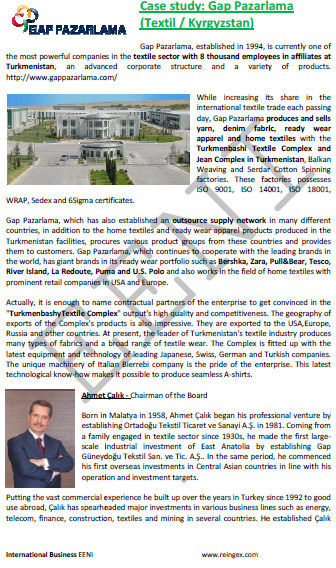
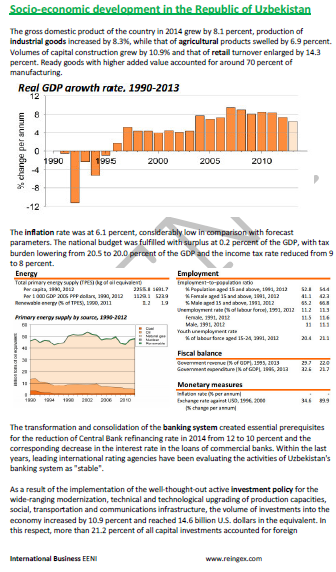
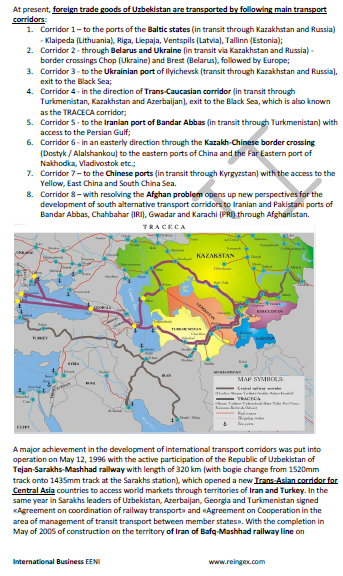
(c) EENI Global Business School (1995-2025)
Top of this page










 WhatsApp
WhatsApp